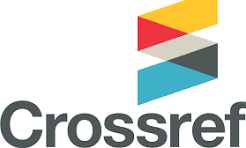الخيال يخلق الواقع
رواية ”الصور على الحائط“والحنين إلى ”العصر الذهبي“ في العراق
DOI:
https://doi.org/10.64166/b6gt6y19الملخص
يتناول المقال ردود الفعل على ترجمة رواية تسيونيت فتال- كوبرفاسر، الصور على الحائط، للعربية، والدالالت التي تحملها هذه الترجمة فيما يتعلق بالنقاش الراهن حول اليهودفي العراق. تحكي الرواية قصة نوريا التراجيدية، وهي امرأة يهودية عراقية تتمرد علىالمجتمع األبوي في العراق في النصف األول من القرن العشرين. تفقد البطلة أبناءها الثالثةفي حوادث مختلفة، أما ابنها الرابع الذي ولد بعد وفاة إخوته الكبار فيقرر، مثله مثل الكثير مناليهود اآلخرين في عام ،١٩٥١ أن يهاجر إلى إسرائيل مع أهله. في أعقاب ترجمة الرواية إلىً العربية، قام مثقفون عراقيون بالتواصل مع المؤلفة، وكتبوا عنها كثيرا في اإلعالم العراقي،كما كتبت هي نفسها في الصحافة العراقية. تؤكد ردود الفعل العراقية على الرواية على ظهورخطاب جديد في المجتمع العراقي، خطاب يسعى إلى التعرف واالطالع على األقلية اليهوديةالتي عاشت في العراق وغادرت بغالبيتها في الخمسينات من القرن العشرين. يبين المقال بأنأعمال فتال-كوبرفاسر، وكذلك أعمال مبدعين إسرائيليين آخرين من ذوي األصول العراقية،تباع وتدرس وتقرأ في العراق، ذلك ألنها، من ضمن أمور أخرى، تكمل من ناحية جمهورالقراء في العراق الفصل الناقص حول يهود العراق، وهو الفصل الذي محي من سجالتهاالتاريخية. وقد مرت المؤلفة بسيرورة شبيهة، ال سيما أنها تلقت تعليمها في جهاز التربيةاإلسرائيلي حيث اتضح لها بأن ميراث وثقافة يهود العراق، ولو أنها جزء ال يتجزأ من تاريخً اليهود، ال ذكر لها تقريبا في جهاز التربية اإلسرائيلي. ال ينشغل العراقيون، من جهتهم،بإسرائيلية المؤلفة إنما ينظرون إلى محاولة المبدعين اليهود ذوي األصول العراقية للحفاظعلى الميراث الثقافي ألهاليهم من خالل أعمالهم، كدليل على كونهم عراقيين ليس بدرجة أقلمن كونهم إسرائيليين.
المراجع
التنزيلات
منشور
إصدار
القسم
الرخصة
الحقوق الفكرية (c) 2020 Jama'a: an Interdisciplinary Journal of Middle East Studies

هذا العمل مرخص بموجب Creative Commons Attribution-NonCommercial 4.0 International License.





